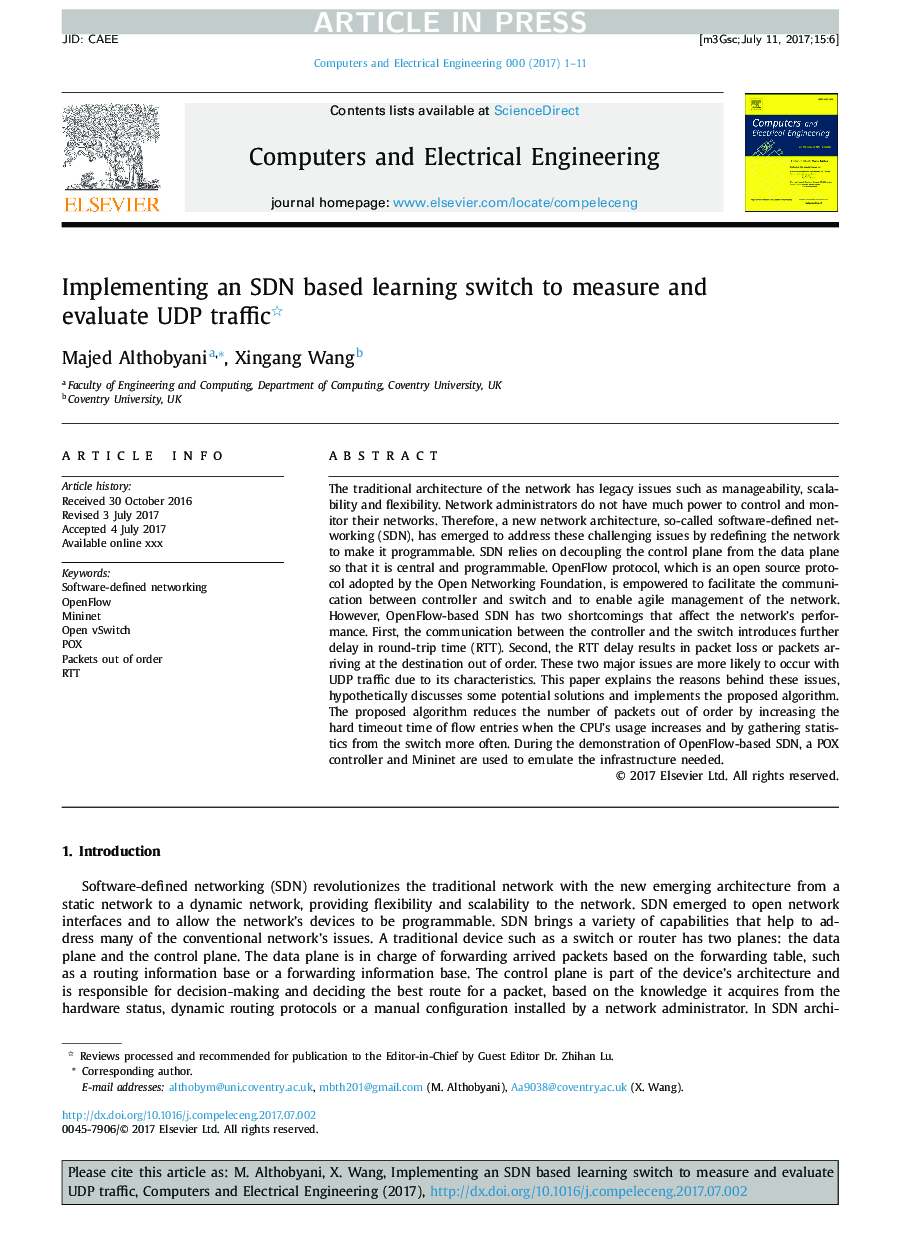| Article ID | Journal | Published Year | Pages | File Type |
|---|---|---|---|---|
| 6883499 | Computers & Electrical Engineering | 2018 | 11 Pages |
Abstract
The traditional architecture of the network has legacy issues such as manageability, scalability and flexibility. Network administrators do not have much power to control and monitor their networks. Therefore, a new network architecture, so-called software-defined networking (SDN), has emerged to address these challenging issues by redefining the network to make it programmable. SDN relies on decoupling the control plane from the data plane so that it is central and programmable. OpenFlow protocol, which is an open source protocol adopted by the Open Networking Foundation, is empowered to facilitate the communication between controller and switch and to enable agile management of the network. However, OpenFlow-based SDN has two shortcomings that affect the network's performance. First, the communication between the controller and the switch introduces further delay in round-trip time (RTT). Second, the RTT delay results in packet loss or packets arriving at the destination out of order. These two major issues are more likely to occur with UDP traffic due to its characteristics. This paper explains the reasons behind these issues, hypothetically discusses some potential solutions and implements the proposed algorithm. The proposed algorithm reduces the number of packets out of order by increasing the hard timeout time of flow entries when the CPU's usage increases and by gathering statistics from the switch more often. During the demonstration of OpenFlow-based SDN, a POX controller and Mininet are used to emulate the infrastructure needed.
Related Topics
Physical Sciences and Engineering
Computer Science
Computer Networks and Communications
Authors
Majed Althobyani, Wang Xingang,
